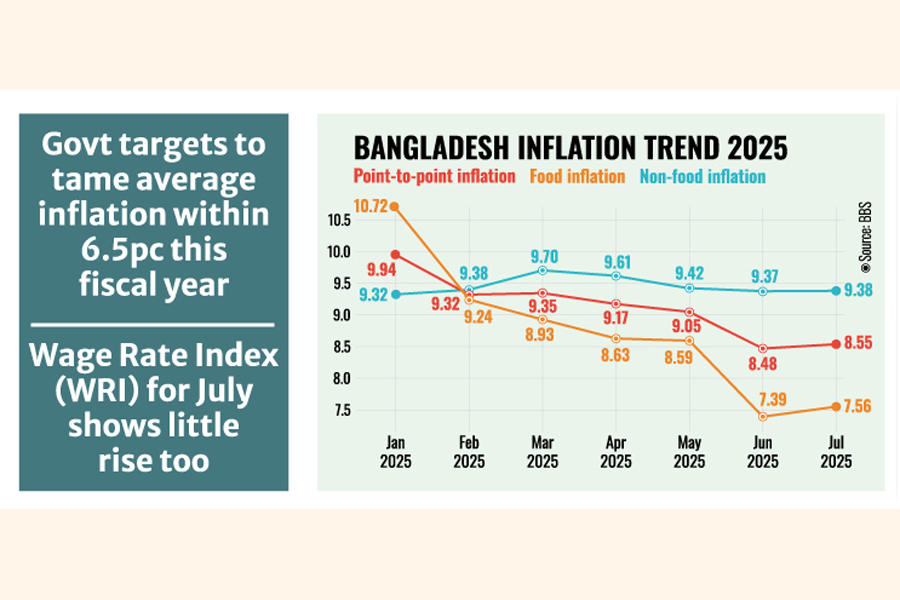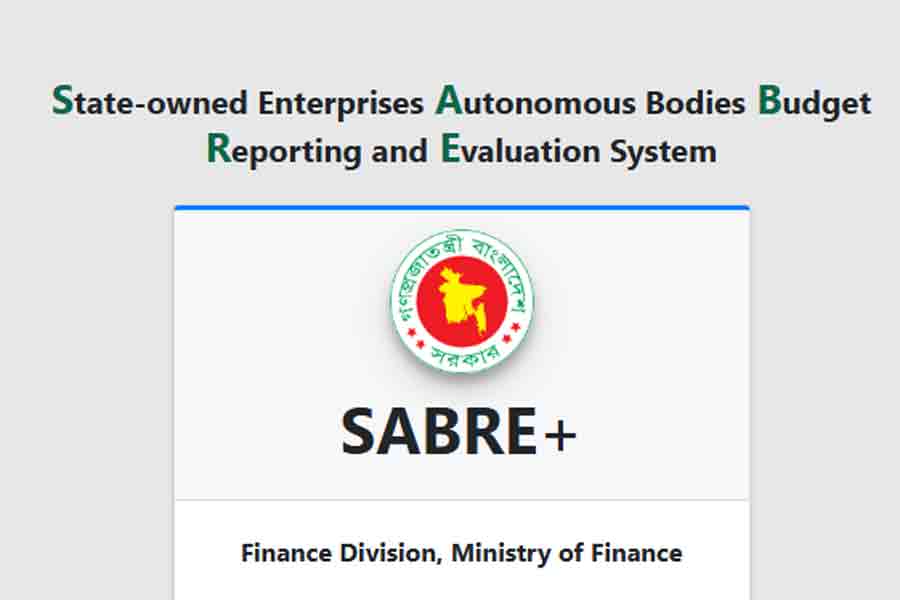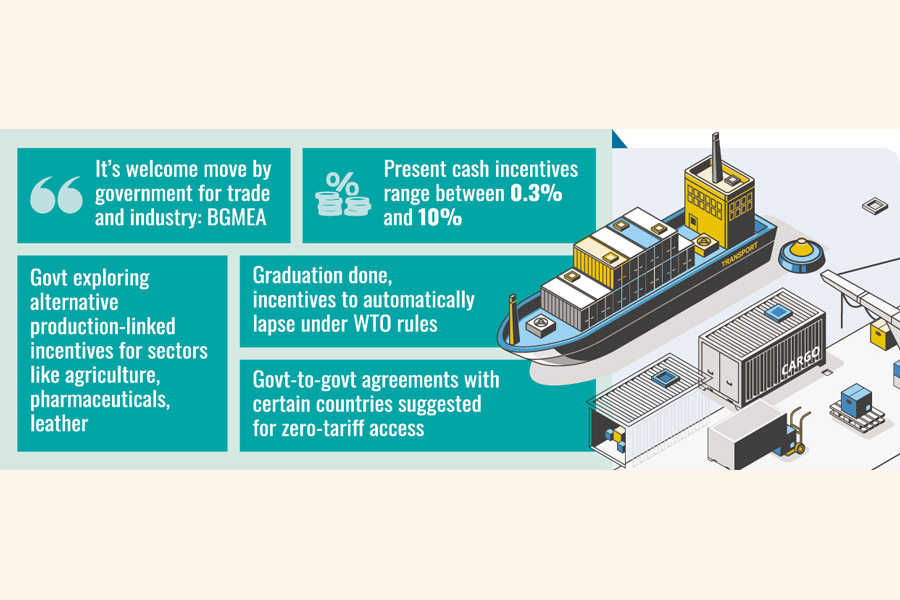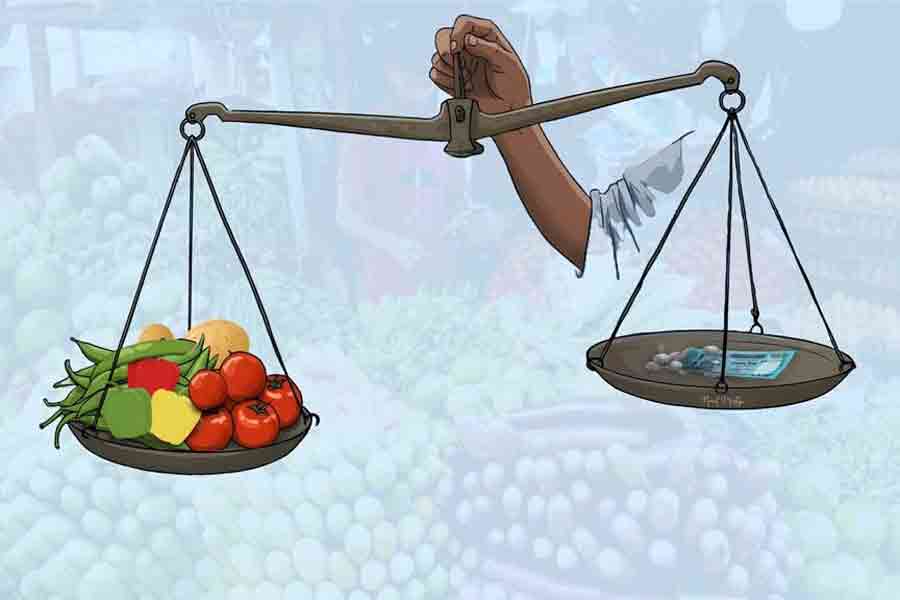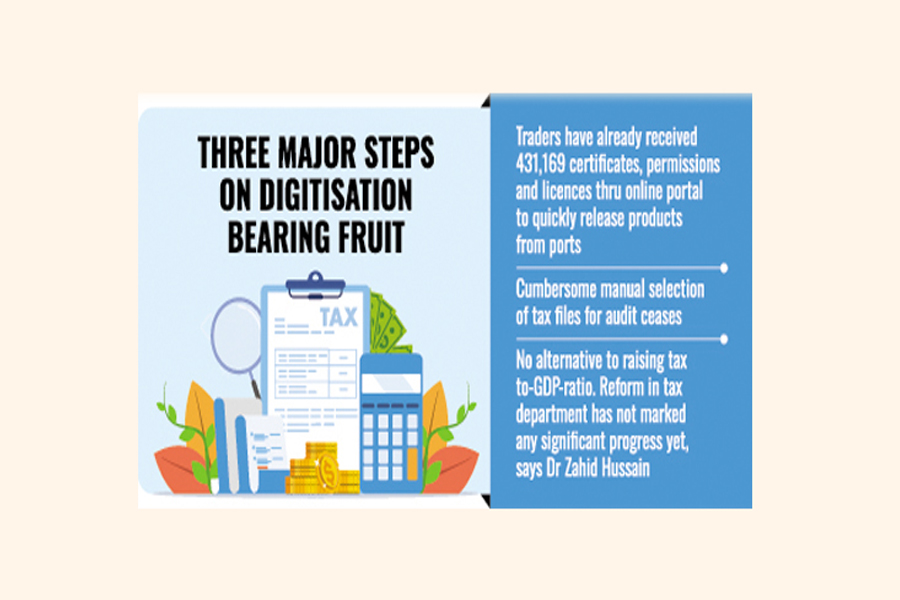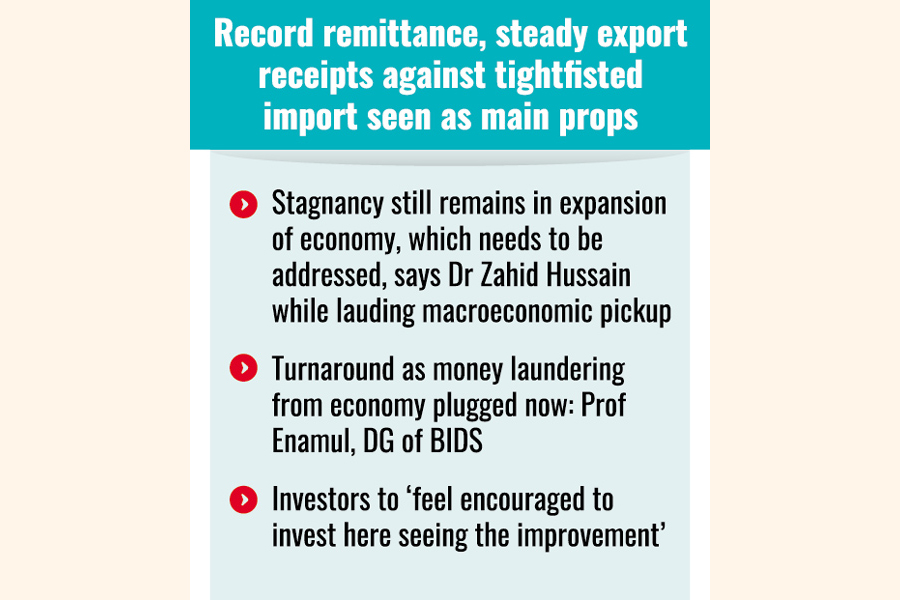Saif
Senior Member
- Joined
- Jan 24, 2024
- Messages
- 16,447
- Likes
- 8,111
- Nation

- Residence

- Axis Group

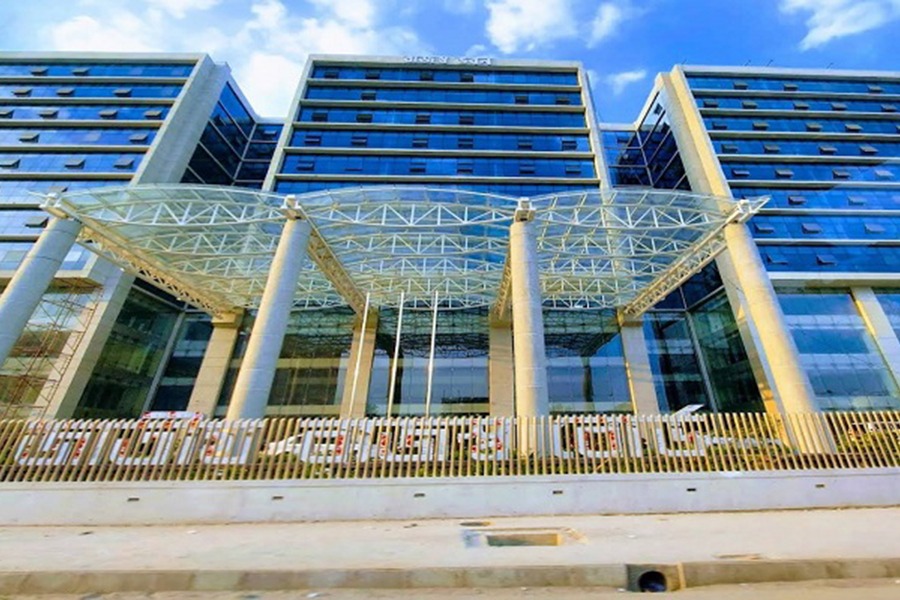
NBR revenue targets and ground realities
The government must proceed with prudence and fiscal discipline, ensuring that even with reduced allocations, development priorities are met, and austerity is maintained across governance Despite repeated calls from businesses and think tanks to enhance the NBR's revenue mobilisation effor
NBR revenue targets and ground realities
FE
Published :
Aug 07, 2025 23:41
Updated :
Aug 07, 2025 23:41

The government must proceed with prudence and fiscal discipline, ensuring that even with reduced allocations, development priorities are met, and austerity is maintained across governance
Despite repeated calls from businesses and think tanks to enhance the NBR's revenue mobilisation efforts in a systemic manner, shortfalls in collection have become a recurring issue. A report by The Financial Express, citing official sources, reveals that the NBR must collect nearly 35 per cent more revenue in FY26 than in FY25 to meet its ambitious target. The income tax wing alone is tasked with a 43 per cent increase, reflecting the pressure across all three revenue wings. The targets set for FY26 are: income tax-- 42.63 per cent higher than FY25; value added tax (VAT)-- 30.49 per cent higher, and customs duty-29 per cent higher. To meet the total revenue goal of Tk 4.99 trillion, the NBR needs to increase collections by approximately 35 per cent, compared to Tk 3.70 trillion collected in FY25. Many observers argue that the persistent revenue shortfall is partly due to unrealistically high targets, which are often set without adequately assessing the prevailing economic conditions. Businesses continue to struggle with rising production costs, reduced profitability, and uncertainty, all of which constrain their ability to pay higher taxes. Economists have voiced concerns that such inflated targets may lead to aggressive tax collection measures, placing undue burden on taxpayers. They also point out that the current economic environment does not support such high expectations for tax and duty revenues.
In FY25, overall revenue growth was a mere 2.23 per cent-one of the lowest in NBR's history-amid months of political instability. In the final month (June), collections fell 37.6 per cent short of the monthly target, and registered a 19 per cent year-on-year decline. According to NBR officials, this shortfall stemmed from internal disruptions, poor execution of the Annual Development Programme (ADP), weak private investment, and a sluggish business environment, following the July uprising last year. Furthermore, VAT collection saw an abrupt decline, causing revenue growth to fall below 9 per cent year-on-year in May, the lowest in 12 months. Despite these setbacks, the overall growth in revenue collection stood at about 15 per cent, which is still far below what is required to meet the FY26 target. On the customs side, imports rose by 1.4 per cent over the past 11 months compared to the same period last year, while customs duty realisation grew by 13 per cent.
A critical question arises: will the revenue shortfall severely impact development spending? In response, Finance Adviser Dr. Salehuddin Ahmed noted that the FY26 budget has been framed conservatively, with reduced expenditure plans to account for potential shortfalls. According to Ministry of Finance data, public spending may decline to 12.7 per cent of GDP, and the development budget has been set at the lowest level in four years.
Given the circumstances, the government must proceed with prudence and fiscal discipline, ensuring that even with reduced allocations, development priorities are met, and austerity is maintained across governance.
FE
Published :
Aug 07, 2025 23:41
Updated :
Aug 07, 2025 23:41
The government must proceed with prudence and fiscal discipline, ensuring that even with reduced allocations, development priorities are met, and austerity is maintained across governance
Despite repeated calls from businesses and think tanks to enhance the NBR's revenue mobilisation efforts in a systemic manner, shortfalls in collection have become a recurring issue. A report by The Financial Express, citing official sources, reveals that the NBR must collect nearly 35 per cent more revenue in FY26 than in FY25 to meet its ambitious target. The income tax wing alone is tasked with a 43 per cent increase, reflecting the pressure across all three revenue wings. The targets set for FY26 are: income tax-- 42.63 per cent higher than FY25; value added tax (VAT)-- 30.49 per cent higher, and customs duty-29 per cent higher. To meet the total revenue goal of Tk 4.99 trillion, the NBR needs to increase collections by approximately 35 per cent, compared to Tk 3.70 trillion collected in FY25. Many observers argue that the persistent revenue shortfall is partly due to unrealistically high targets, which are often set without adequately assessing the prevailing economic conditions. Businesses continue to struggle with rising production costs, reduced profitability, and uncertainty, all of which constrain their ability to pay higher taxes. Economists have voiced concerns that such inflated targets may lead to aggressive tax collection measures, placing undue burden on taxpayers. They also point out that the current economic environment does not support such high expectations for tax and duty revenues.
In FY25, overall revenue growth was a mere 2.23 per cent-one of the lowest in NBR's history-amid months of political instability. In the final month (June), collections fell 37.6 per cent short of the monthly target, and registered a 19 per cent year-on-year decline. According to NBR officials, this shortfall stemmed from internal disruptions, poor execution of the Annual Development Programme (ADP), weak private investment, and a sluggish business environment, following the July uprising last year. Furthermore, VAT collection saw an abrupt decline, causing revenue growth to fall below 9 per cent year-on-year in May, the lowest in 12 months. Despite these setbacks, the overall growth in revenue collection stood at about 15 per cent, which is still far below what is required to meet the FY26 target. On the customs side, imports rose by 1.4 per cent over the past 11 months compared to the same period last year, while customs duty realisation grew by 13 per cent.
A critical question arises: will the revenue shortfall severely impact development spending? In response, Finance Adviser Dr. Salehuddin Ahmed noted that the FY26 budget has been framed conservatively, with reduced expenditure plans to account for potential shortfalls. According to Ministry of Finance data, public spending may decline to 12.7 per cent of GDP, and the development budget has been set at the lowest level in four years.
Given the circumstances, the government must proceed with prudence and fiscal discipline, ensuring that even with reduced allocations, development priorities are met, and austerity is maintained across governance.

